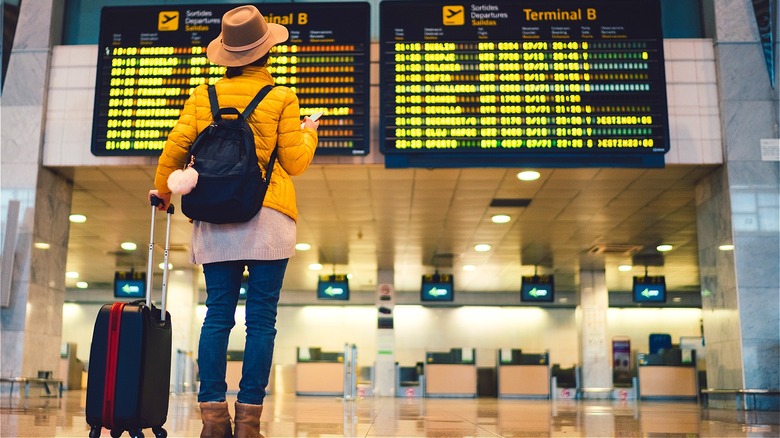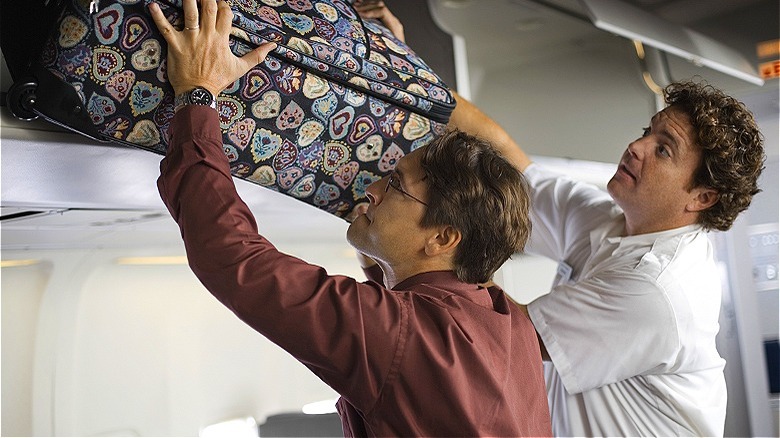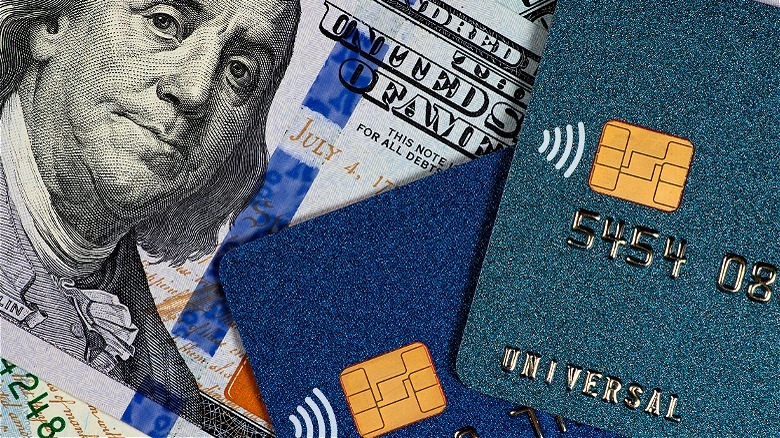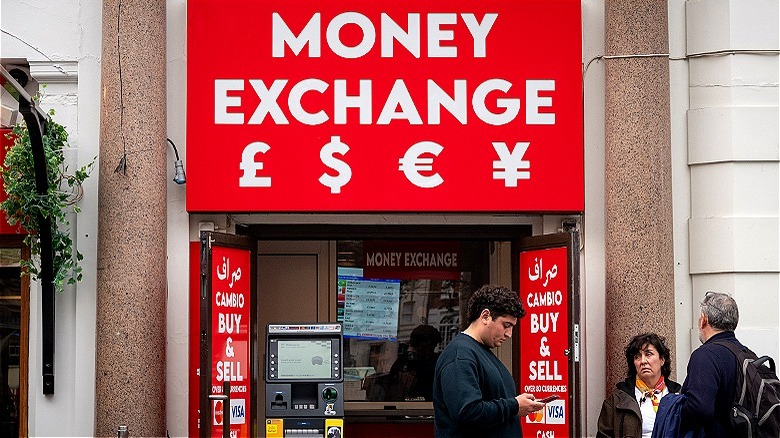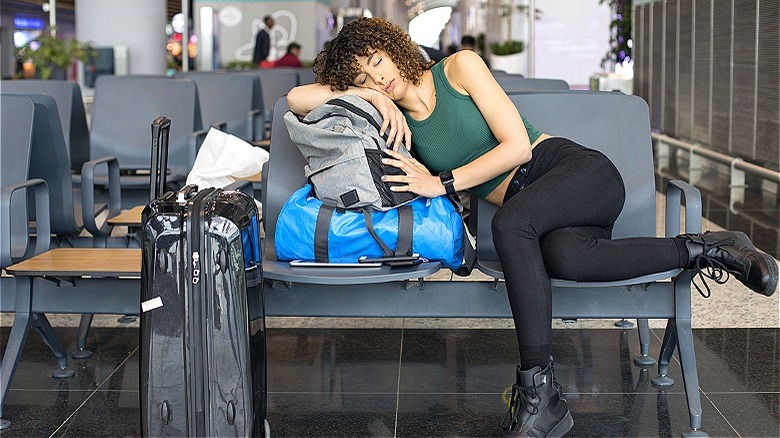Stop Making These Major Money Mistakes While Traveling
Following the COVID-19 pandemic and associated restrictions, the travel industry is witnessing tremendous pent-up demand, with high prices to match. While the escalated prices of hotel rooms, airfare, and the like might be out of your control, there are definitely steps you can take to avoid wasting your hard-earned dollars, whether visiting other parts of the United States, or the world.
You've likely heard all sorts of money-saving tips, like booking air travel on a certain day of the week or using your browser's incognito mode to search for deals. While some of those tips are more than a little questionable, there are legitimate steps you can take with regard to paying for meals, souvenirs, and more that will keep some extra money in your wallet.
Yes, a vacation is meant to be a time to unwind and rejuvenate, not worry over every small detail. That said, a few smart tips can save you from unnecessarily enriching businesses like airlines and banks during your next trip, all with a minimum of effort. From the amount of luggage you carry to how best to pay for purchases like meals, doing your research before leaving home will go a long way toward preventing wasted money when traveling.
Accepting unfavorable currency conversions
When using a credit card abroad, travelers may be presented with the option to have the charge converted into their home currency, such as dollars. That seems convenient, right? It's easy to tell exactly how much you're paying without having to do any impromptu mathematical calculations. In reality, this offer of Dynamic Currency Conversion (or DCC for short) is a bad deal for travelers.
Like many things in life that tout convenience, DCC comes at a cost. To begin with, the currency exchange rate is almost always worse than the exchange rate that's charged by your own bank or credit card issuer. Plus, a conversion fee may be added on top of an already unfavorable conversion rate. A 2017 study by The European Consumer Organisation found DCC exchange rates to be marked up anywhere from 2.6% up to a whopping 12%.
When presented with the opportunity to have your transaction converted to your home currency, you'll definitely want to decline and choose to pay in the local currency instead, then let your own bank sort out the currency conversion later. Yes, there is a bit of uncertainty involved, but just have confidence that large credit organizations like Visa and Mastercard are able to obtain competitive exchange rates that'll almost surely be favorable to the DCC rates. By the way, everything here applies equally to cash withdrawals from an ATM machine as it does to credit card terminals.
Not knowing luggage rules
When flying discount carriers, like Spirit Airlines domestically or Ryanair when abroad, travelers should know that just about everything besides basic transportation comes with a fee. Increasingly, mainstream carriers, like American Airlines and United Airlines, are offering these stripped-down fares as well, dubbed "basic economy." Besides paying for a seat selection in advance, you can often expect to also pay for luggage in excess of a small backpack or personal item. Some airlines charge for both carry-on bags (which go in the overhead bins) and larger checked bags, while others only charge for the latter.
In any case, check your airline's luggage policy in advance, as well as the rules for your particular fare class (like basic economy versus standard economy) — ideally before even booking the flight. By doing so, it can be determined if a bargain ticket is indeed a good deal after all compared to a more full-featured fare, once all of the fees are factored in.
Those traveling internationally should also know that rules for carry-on bags are frequently more strict when traveling abroad. For example, the maximum dimensions may be smaller than U.S.-based carriers permit. Also, many foreign airlines have a weight limit for any carry-on bags (as low as 15 pounds) that may be enforced with a scale at the boarding gate. If you're forced to gate check carry- on luggage at the last minute because of size and/or weight, it'll cost astronomically more than if it was checked to the cargo hold in advance.
Using the wrong credit card
Besides avoiding unfavorable currency conversion rates at foreign credit card terminals, also be aware that many U.S. credit card issuers will charge a fee for international transactions in addition to any fees charged by the merchant or credit card processor. Once upon a time, foreign transaction fees compensated for the additional complications of settling foreign transactions, as well as provided a buffer against fluctuations in currency exchange rates. Nowadays, technology has rendered those concerns obsolete, yet many credit card issuers continue to charge foreign transaction fees.
Typically 1% to 3% of the purchase amount, these fees can really add up on a longer trip abroad. Fortunately, there are a plethora of cards to select from that don't charge a foreign transaction fee, many of which are specifically geared toward travelers and have other useful little-known travel- related perks like trip insurance. If you're planning to travel overseas in the near future and don't already have one or more fee-free credit cards, you'd be wise to apply for one now.
Note that credit cards with no foreign transaction fees can also come in handy for making online purchases from overseas merchants, even if you don't travel. Also, be aware that policies vary by credit card issuer, and some issuers recommend alerting them online or via telephone that you're planning to use the card internationally or else such transactions could be flagged as fraudulent.
Getting stuck with leftover foreign currency
Unless you're deliberately planning to hang on to some local currency as a souvenir of your epic international trip, it's wise to spend your last yen or euro before flying home. While it is true that using credit cards as much as possible will minimize the need for carrying cash, you'll probably withdraw at least a small quantity of local currency for things like paying street food vendors or tipping your free walking tour guide.
For travelers, it can be a balancing act withdrawing funds from a foreign ATM. Because there's sometimes a significant fixed fee, regardless of the transaction value, it can be tempting to withdraw too much local currency to justify the transaction fee. While that's a good idea in theory, do make sure you'll actually spend all of that foreign currency. If you're finding yourself with a pocket full of pound sterling on your last day of vacation, try to remember to refrain from using credit cards in favor of burning that cash. Small quantities of leftover currency can be used to buy beverages or snacks at convenience stores on your final vacation day or even at the airport before departing.
Speaking of airports, the currency exchange booths located inside of airports are typically a poor choice to convert your loot back to U.S. dollars because of unfavorable exchange rates. However, if that's your only alternative, it's better than the money sitting in a junk drawer once you get home.
Forgetting that time is a valuable resource
As avid travelers know, there never seems to be enough paid time off to take all of your bucket-list trips. On your next activity-packed trip, consider whether saving money is truly worth sacrificing a portion of your precious vacation time. For example, taking a bus or subway to reach a destination might cost less than a taxi or Uber in an absolute sense, but how much longer are you going to spend taking public transit? What if it's not a direct journey and there's a time-consuming and/or stressful transfer involved?
That same logic applies to flights as well. A cheaper flight that requires additional and/or longer layovers might not be worth the savings in terms of sacrificing vacation time, along with the added aggravation and increased potential for delays. Package tours and cruises sometimes offer subsidized or cheap airfare, but frequently, you'll receive the cheapest routing, which may not be the most convenient or direct. Worse still, some vendors don't purchase airfare for their clients until the last minute, so you'll be kept in the dark as to routing until then. It's best to investigate airfare prices yourself with a tool like Kayak or Google Flights to determine if potential hassles are worth the savings.
Finally, it's probably best to avoid the museums and other tourist sites on the days that offer free admission. Sure, you'll save money but the huge crowds and lines might have you wishing that you visited on a regular day instead.
